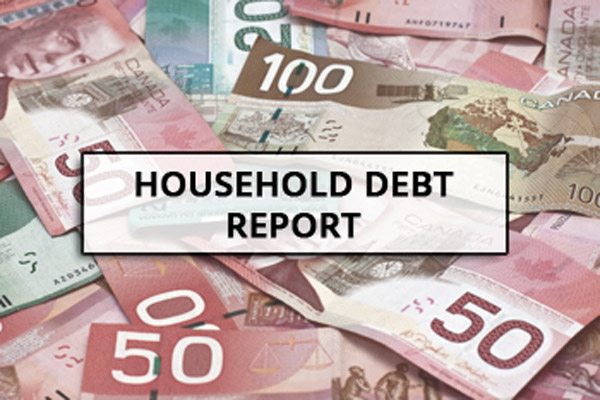Canadians keep digging themselves deeper into debt
12/14/2016
| SHARE
Posted in Financial Health by Vanguard Realty | Back to Main Blog Page

Canadian household debt hit a record high in the third quarter, as the country’s love affair with low interest rates fuelled another round of heavy borrowing.
The ratio of debt to disposable income rose to 166.9 per cent from a revised 166.4 per cent in the second quarter, according to Statistics Canada’s national balance-sheet report released on Wednesday.
The government agency said this amounted to households owing $1.67 in debt for every dollar of disposable income at the end of the third quarter.
Rock-bottom interest rates combined with soaring real estate prices have been responsible for a high pace of borrowing and a spike in mortgage loans.
“That really is at the heart of why we have seen this relentless rise in debt to income over the years,” said Douglas Porter, chief economist with Bank of Montreal. “It is by far and away the primary driver.”
Total household credit-market debt reached $2.004-trillion, with $1.31-trillion in mortgages and $590-billion in credit cards, car loans and other personal loans.
Household credit-market debt, which includes mortgage loans and consumer credit, increased 1.3 per cent in the third quarter, while disposable income increased 1 per cent.
Debt will continue to be cheap with Canada’s central bank signalling it would keep interest rates below 1 per cent in the near term.
“We have effectively made debt almost free,” said Craig Alexander, chief economist with the Conference Board of Canada. “If you make debt cheap, Canadians will borrow more … but that doesn’t mean they are not making sound financial decisions.”
The report showed the share of disposable income used to pay debt remained close to 14 per cent.
But the share of mortgage debt relative to the total credit market resumed expanding after temporarily stopping in the second quarter.
Mortgage debt accounted for 65.5 per cent of all credit-market debt, compared with 65.1 per cent in the previous period.
The federal and the B.C. governments have taken steps to cool the country’s two hottest housing markets, Toronto and Vancouver. A 15-per-cent real estate tax on foreign buyers in Vancouver has succeeded in slowing real estate price increases and sales. But stricter federal mortgage rules have had little effect on calming housing markets outside of Vancouver, the greater Toronto area and suburbs.
The Teranet-National Bank National Composite House Price Index rose 0.2 per cent in November, with record prices in Toronto, Hamilton and Victoria.
The new mortgage rules, which were designed to ensure Canadians can handle their debt loads, went into effect in October, one month after the end of the third quarter.
“It’s not obvious we will get a slowdown in debt accumulation,” Mr. Porter said. “There is so much momentum in some cities,” he said.
The Bank of Canada has warned repeatedly that high household debt could threaten financial stability. The central bank is expected to say more when it releases its review of vulnerabilities to the country’s financial system on Thursday.
Regardless of the higher debt loads, household balance sheets improved due to rising financial asset and real estate values. Household net worth was up 2.5 per cent to $10.13-trillion.
“The third quarter marked an overall improvement in the household balance sheets, as rising asset values and low interest rates helped offset higher credit balances,” Toronto-Dominion economist Diana Petramala said in a note.
The Statscan report also showed Canadians are walking a tightrope between debt accumulation and bulking up on their savings.
The household savings rate increased to its highest level since the year 2000, as cash from Ottawa’s expanded Canada Child Benefit program started rolling out in July.
The household savings rate increased to 5.8 per cent in the third quarter from 4.8 per cent in the previous quarter.
“I think a lot of Canadians that received the expanded child benefit have used it to increase their savings,” Mr. Alexander said. “Canadians choosing to save is a positive thing but it is tempering how much of a lift it creates in terms of consumer spending,” he said.
Federal government borrowing also increased, with the issuance of $10.6-billion in Canadian bonds in the last quarter.

Thinking of buying or selling a property, or have a question regarding the real estate market? Fill out the form below and we'll get back to you promptly.
